Right after the Lunar New Year of Giap Thin, livestock herd restoration work was actively implemented by households and livestock farms in the province to stabilize food supply for the market associated with disease prevention and control for livestock and poultry during the transitional season.

Mr. Do Quang Trung, Phuc Lai village, Thanh Van commune (Tam Duong) uses light bulbs to warm up his flock of more than 2,000 chickens that he raised after the Lunar New Year. Photo: Nguyen Luong
Thanh Van Commune is known as one of the leading localities in livestock farming in Tam Duong district with a scale of millions of GSGC of all kinds. Among them, there are many large poultry farms, with a scale of 2,000 birds or more.
During the 2024 Lunar New Year, a large number of GSGC herds in the commune were sold to serve the increased food demand of the people during Tet. Therefore, currently, many farms and households in the area have been promoting herd restoration to ensure food supply for the market after Tet.
The weather is warm and favorable for livestock development. On January 9, Mr. Do Quang Trung's family in Phuc Lai village, Thanh Van commune, incubated and re-raised a flock of 2,000 Egyptian super egg chickens.
It is known that during the recent Lunar New Year, Mr. Trung's family sold more than 2,000 broiler chickens. However, according to Mr. Trung, due to the high price of feed and the selling price of broiler chickens reaching only 55,000 VND/kg, the profit from raising them is not large; therefore, re-herding needs to be more careful to limit losses and supply exceeding demand.
In addition, because the weather is currently in the transitional period, the temperature fluctuates, affecting the resistance of livestock, and the risk of disease outbreaks is high. Therefore, in addition to maintaining the cleanliness of the barn, Mr. Trung focuses on adding vitamins and minerals to the daily diet and using light bulbs to warm the newly raised chickens.
Immediately after selling the entire flock of nearly 1,000 chickens and a dozen pigs for meat during the pre-Tet period, Mr. Nguyen Minh Ba's family in Cao Phong commune (Song Lo) cleaned the entire barn area, sprinkled lime, and disinfected to restock. However, because the price of live pigs, eggs, and chickens for sale is still low, Mr. Ba said he will not rush to stock up in large numbers.
In 2023, agricultural production in the province in particular will face many difficulties and challenges when many dangerous infectious diseases in livestock herds such as African swine fever, avian influenza, foot-and-mouth disease, etc. are complicated in many localities across the country, and prices of input materials for production are increasing while the selling prices of some livestock products such as pork, eggs, etc. are low at some times.
However, with the drastic participation of authorities at all levels and functional sectors, the livestock sector in the province still has quite good development; technical advances in livestock farming are widely applied, contributing to improving productivity and product quality.
The total herd of dairy cows, pigs and main livestock products such as pork, poultry, poultry eggs, and fresh cow's milk all increased compared to 2022, bringing the province's livestock production value in 2023 to VND 6,342 billion, reaching 101.3% of the yearly plan and increasing by 4.3% compared to 2022, contributing positively to the overall growth of the agricultural sector.
By the end of January 2024, the province's total pig herd reached 475,000 heads, the buffalo and cow herd reached more than 100,000 heads, the poultry herd reached more than 12 million heads; the output of live pigs for slaughter reached 7,880 tons, live buffalo and cow meat for slaughter reached 572 tons and live poultry meat for slaughter reached 4,260 tons.
In order to effectively restore livestock production in the province after Tet, the Provincial Department of Animal Husbandry and Veterinary Medicine requires the Animal Husbandry and Veterinary Medicine Stations of districts and cities to coordinate with the specialized departments of the People's Committees at district and commune levels, assign officers in charge of the area and direct commune-level veterinary staff to focus on promoting propaganda, dissemination, and guidance for livestock farmers to restore production.
Accordingly, before re-herding, breeders need to find out information, forecast market developments and supply - demand, and product consumption locations to avoid oversupply; especially for facilities that have had an epidemic, it is important to note that they should not re-herd when biosafety conditions have not been met. When re-herding, they need to raise a small number of animals first, and only after stabilization can the size of the herd be increased.
Carry out cleaning, sanitation, waste treatment, bush clearing, sewer dredging, disinfection and sterilization of all barns and livestock environments with lime powder and other disinfectants.
Selected breeds must have clear origins, be of the right quality and be fully vaccinated against infectious diseases according to regulations. During the care and rearing process, it is necessary to ensure a nutritious diet combined with the use of biological products to enhance resistance for each type of livestock...
Currently in the transitional season, the weather is sunny and rainy with erratic changes, high humidity can easily cause diseases in livestock.
To proactively prevent and effectively combat dangerous infectious diseases in livestock, the Provincial People's Committee has issued a document requesting the Department of Agriculture and Rural Development to direct specialized agencies to closely coordinate with local authorities to drastically deploy disease prevention and control solutions, combined with propaganda and guidance for livestock facilities and households to apply measures to prevent and combat hunger and cold for livestock; raise livestock with biosecurity and disease safety, and prepare well for the first GSGC vaccination round in 2024.
Do not hide the epidemic, do not sell, slaughter, or dump the carcasses of sick or suspected sick animals into the environment... Thereby ensuring a stable food supply, contributing to the completion of the goals set by the agricultural sector in 2024.
Liu Nhung
Source



![[Photo] Prime Minister Pham Minh Chinh attends the annual Vietnam Business Forum](https://vphoto.vietnam.vn/thumb/1200x675/vietnam/resource/IMAGE/2025/11/10/1762780307172_dsc-1710-jpg.webp)




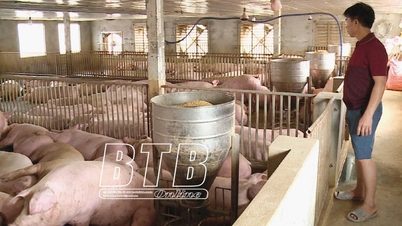



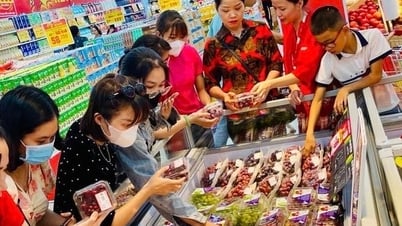

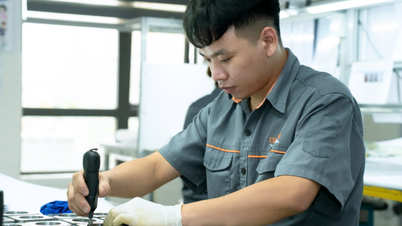
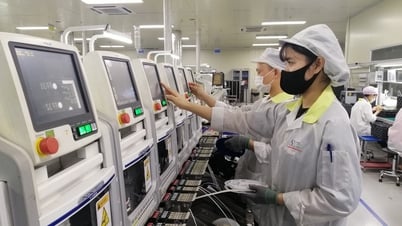








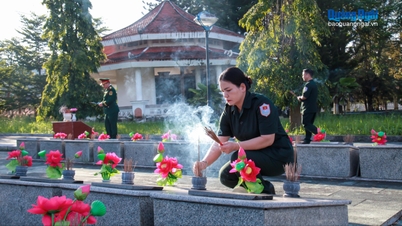




![[Photo] Prime Minister Pham Minh Chinh attends the Patriotic Emulation Congress of the Ministry of Foreign Affairs for the 2025-2030 period](https://vphoto.vietnam.vn/thumb/1200x675/vietnam/resource/IMAGE/2025/11/10/1762762603245_dsc-1428-jpg.webp)













































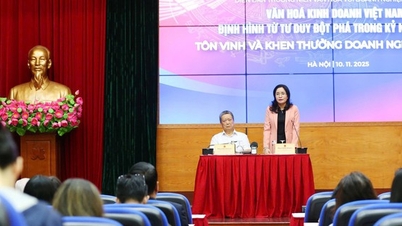
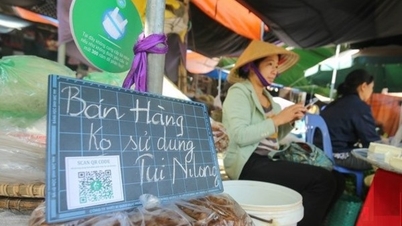
















![Dong Nai OCOP transition: [Article 3] Linking tourism with OCOP product consumption](https://vphoto.vietnam.vn/thumb/402x226/vietnam/resource/IMAGE/2025/11/10/1762739199309_1324-2740-7_n-162543_981.jpeg)










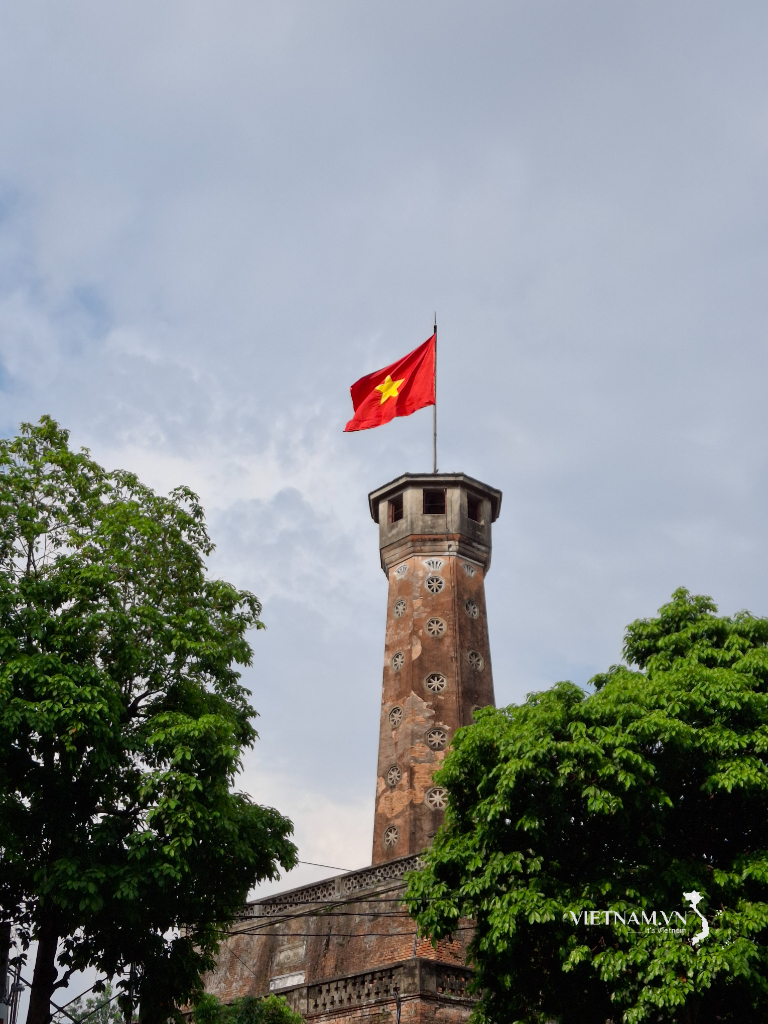
Comment (0)